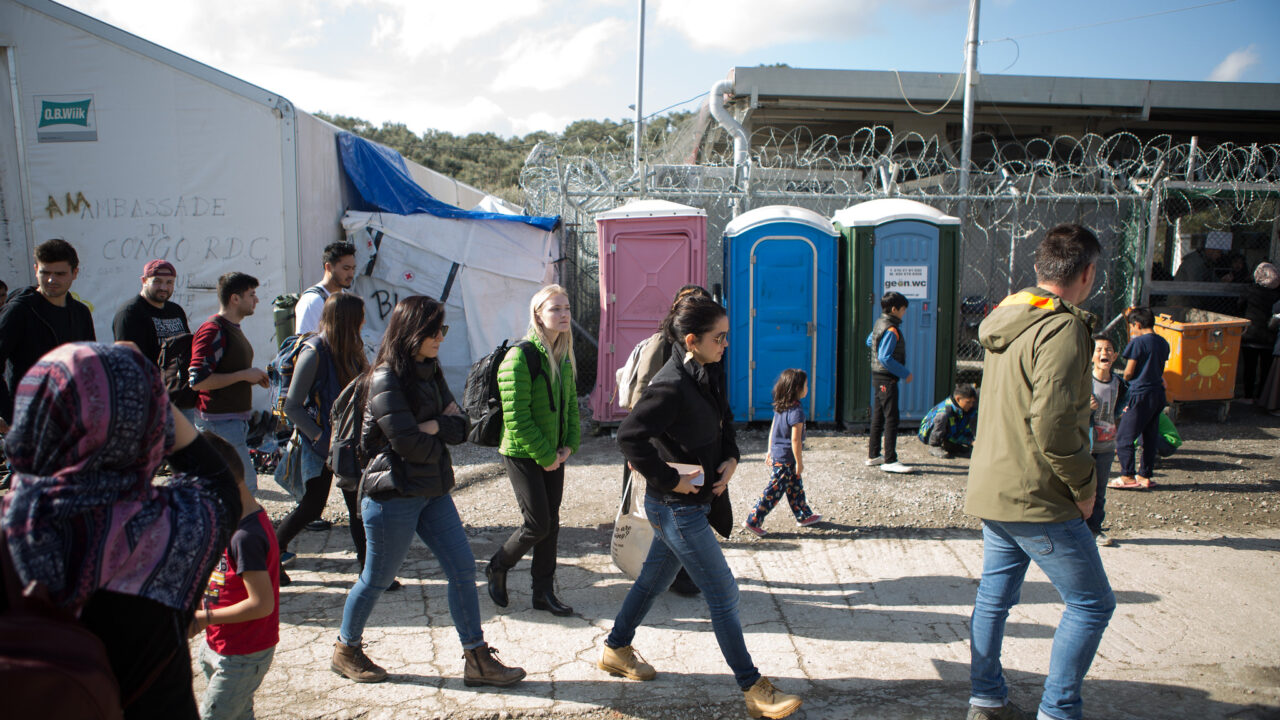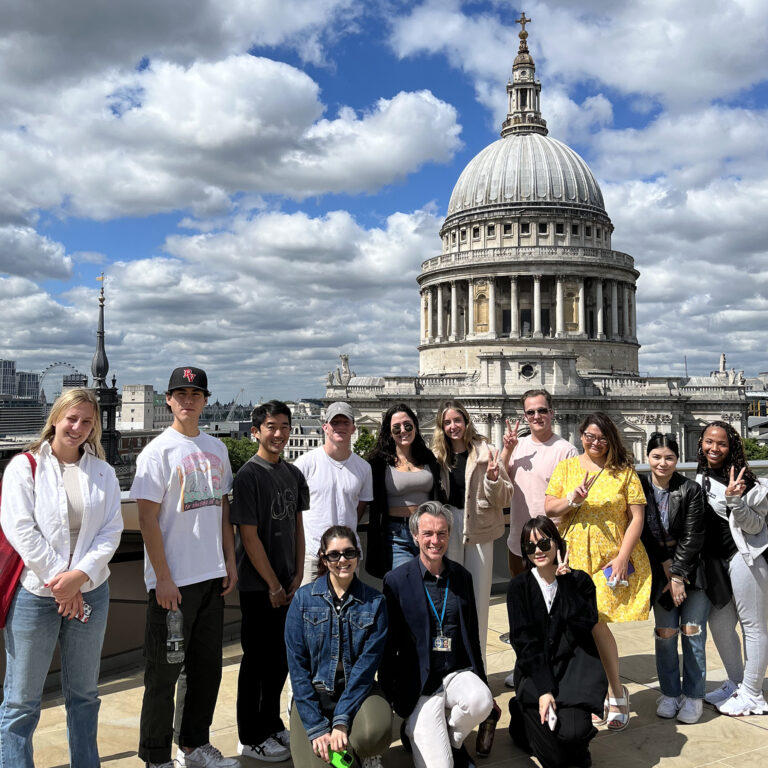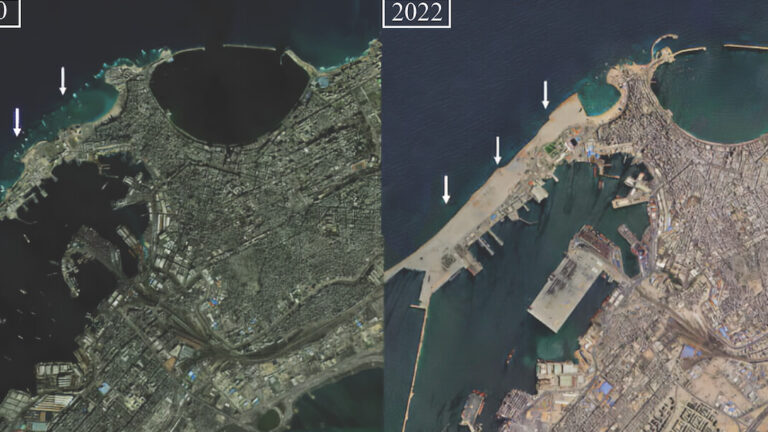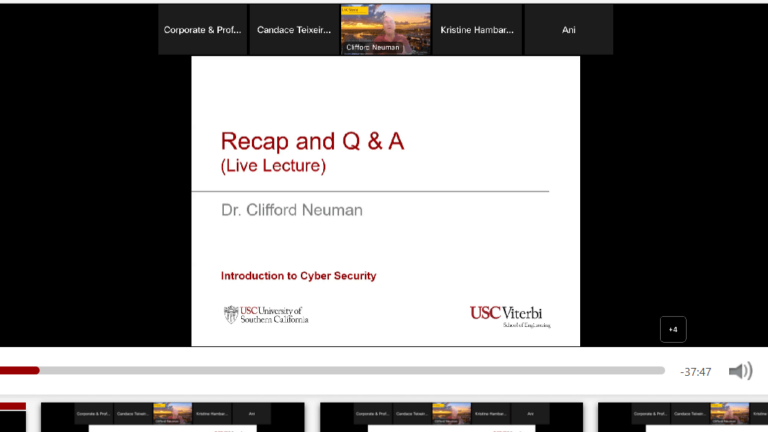
Photo: Courtesy of Daniel Druhora
USC Viterbi Program Fosters Innovative Solutions to Urgent Global Needs
The yearlong, experiential “Innovation in Engineering and Design for Global Crises” USC Viterbi course currently focuses on helping people in war-torn Ukraine.
Winning an Emmy would be considered by many to be a pinnacle of achievement. But for Dan Druhora and his colleagues who teach “Innovation in Engineering and Design for Global Crises,” it’s just a byproduct of documenting their students’ work improving lives.
Offered through the USC Viterbi School of Engineering, the yearlong course unites undergraduate and graduate students from across disciplines to design and implement rapid solutions for urgent concerns faced by communities around the world.
“The Viterbi School really embraces the concept that engineering is the great enabler of other disciplines, intersecting the sciences, arts and humanities to tackle societal challenges,” noted Druhora, a filmmaker whose experience includes working with Warner Bros. and PBS as well as founding the European biotech company AgRenova.
After joining the school in 2015 to share “the stories of engineers who are doing amazing things to change society,” Druhora developed the course in collaboration with Dean’s Professor Burcin Becerik-Gerber, Professor of Practice David Gerber and fellow lecturer Brad Cracchiola, who all represented different disciplines and mindsets.
“All of us aligned around the idea of delivering a different kind of educational model so that students feel empowered to challenge themselves to hit our core north-star metric, which is how many lives we can impact,” explained Gerber, who holds a joint appointment at USC Viterbi and the USC School of Architecture.
Hallmarks of the program include on-site immersion in the problem being tackled, a focus on innovation and entrepreneurship, and representation across disciplines — among both students and faculty.
“You don’t come up with solutions if you stay in your silo,” Gerber told USC Global.
For two-time Viterbi alum Cracchiola, who had never previously taught, the course is something he wishes he could have experienced as a student.
“You can teach all the theory and methods, but theory assumes everything works smoothly,” he said. “This is why, for us, traveling to these locations and talking to people on the ground is where students get the vast leap in understanding.”
His own expertise spans product and app development, consumer electronics, wearable technology, and medical devices and sporting equipment — including leading the development of a paralympic wheelchair manufactured by BMW.
Thanks to Becerik-Gerber’s leadership, the course is now the capstone of a new minor, Engineering Innovation for Global Challenges, introduced in fall 2022. While her duties as chair of the Sonny Astani Department of Civil and Environmental Engineering have taken her away from teaching the course, Druhora, Gerber and Cracchiola remain at its helm.
“Both the minor and the course represent the vanguard of engineering education,” Becerik-Gerber said. “They apply engineering skills through the lens of interdisciplinary collaboration and a user-centered approach while emphasizing our responsibility to make a positive impact on society.”
A Culture and a Community
Since its launch in 2018, the course — which is open to all USC students — has attracted five cohorts from disciplines ranging from business, computer science and public diplomacy to the health sciences, engineering and beyond. Students must apply and are chosen based on their passion, skillset and entrepreneurial “can-do” attitude. Between 36 and 40 participants are selected each year, forming five to six teams.
The first half of the year focuses on problem identification and research, including travel to meet directly with people who are affected by the crisis and those actively engaged in trying to ease it.
“Before you work on the right solution, you have to make sure you’re working on the right problem,” Druhora noted. “Immersion in the problem is vital. Students need to leave their comfort zones. Approaching the problem with a listening mind helps you develop the empathy and passion to solve it.”
December brings “pitch night,” when students present their initial findings and strategies. The spring semester takes students back to the crisis area for on-the-ground testing. Then in May, the teams present their fully functioning prototypes and implementation plans.
While technically two courses over two semesters, the program extends much further for many participants, who — with ongoing mentorship from the faculty — often continue working on their projects for years. Because of this dynamic, the instructors said the course is more accurately described as an incubator.
“We’re building a culture and a community,” Gerber said, noting that several product and service launches have developed into startups that are now self-funding and growing, hiring executives, and recruiting boards.
“The innovation and social entrepreneurship component is deeply embedded into the DNA of the course,” Druhora said. Each year the faculty raise money to fund the travel component, ensuring that all students can participate regardless of their financial means. The Viterbi School provides generous support, but the program also relies on private donors.
“It’s not enough to just build a product that solves a problem,” Cracchiola added. “You have to be able to share the big idea in a way that inspires and motivates potential partners to join your mission.”
Lives Not Grades
The course attracts students who are ambitious, want to make a real-world impact and experience education in a more tangible way.
“That’s why we are so passionate about this program,” Cracchiola said. It’s about enabling students to unlock their creative ideas — “and not feel like they need permission to change the world.”
“It’s about lives, not grades,” Gerber added. That motto also served as the title of the 2022 Emmy-winning PBS documentary directed by Druhora that chronicles the work of the first cohort.
That group journeyed to the Greek island of Lesbos and its Mória refugee camp to give aid and build understanding of the Syrian refugee crisis. The second cohort also focused on Mória, then the world’s largest refugee camp with thousands of people living in makeshift shacks and tents.
The following year, when COVID-19 prevented travel, the program’s third group addressed the pandemic’s effects on Los Angeles. The fourth cohort sought fixes for the sustainability issues and climate-related changes that threaten rural Alaska. And the current group is devoted to mitigating the humanitarian tragedies triggered by Russia’s war on Ukraine.
“We originally planned to go to Tunisia to develop a program with the United Nations High Commissioner for Refugees and several NGOs, but then the war began,” Druhora said. “I am originally from Romania, and my wife’s grandfather was Ukrainian, so it hits very close to me.”
The current initiative also holds special importance for international relations major Kamila Fomin.
“My whole family’s in Ukraine right now,” she told USC Global.
Her team’s project, Raise a Glass, is a wine brand that implements augmented technology so that when you scan the label with your phone, you get a story of Ukrainian resistance.
“We’re trying to create a storytelling experience for Americans to learn more about Ukraine,” she said. Her team is launching the endeavor with “the story of the grandma destroying the Russian drone with a jar of tomatoes.”
But the emphasis is on humanitarian innovation and impact instead of politics.
“You have to be able to help people in need — Ukrainian, Russian or Romanian,” Druhora said.
Connecting Refugees to Resources
The course continues living up to its incubator status by launching numerous lifechanging enterprises. These include Duet, an online platform that uses an app to connect refugees with donors who can then, from anywhere in the world, purchase the needed goods.
Michael Cesar, who has since graduated from USC Marshall School of Business, co-founded Duet with fellow “Innovation in Engineering and Design” team members during the inaugural cohort. The idea arose from the frustration of seeing so many donated goods go to waste because they weren’t what was actually needed.
“So, we focused on making sure that those in need were the main decision makers,” Cesar said. “Then we integrated small local businesses so that the aid would not only help refugees, but also support the community.”
In helping both refugees and business owners in the communities negatively impacted by the crisis, “Duet really flipped micro philanthropy on its head,” Cracchiola noted.
Cesar found the experience so impactful that he has served as entrepreneur in residence for each succeeding cohort in the Viterbi program.
“As much as I enjoyed being a founder, I think I enjoy supporting other teams and founders more,” he said.
Improving Healthcare for the Vulnerable
Vivianna Camarillo first heard about the course while a junior majoring in neuroscience.
“I was learning all about the human body with the intent of going to medical school and healing, but most of my courses were based in theory or foundational science,” she explained.
And although Camarillo understands the importance of that knowledge, she wanted to get a head start on helping others.
After speaking with some of the students who had been to Camp Mória, she knew the “Innovation in Engineering and Design” incubator was the experience she wanted.
“Being able to build things to actually make an impact on people’s lives — all within the span of a year — is an incredible opportunity,” she said.
Camarillo’s team seized that opportunity to meet another need witnessed in the camp: the difficulty faced by doctors and nurses in keeping accurate medical records of their patients. The current standard of electronic health records demands information technologies that are beyond the capacity of most refugee camps, and paper files are too easily lost or misread.
After consulting with providers, patients and the camp manager, the students returned to Los Angeles to develop a system of electronic record keeping tailored specifically to the needs of refugee camps and other settings where resources are scarce.
This led to the founding of Frontida Records, a nonprofit that provides easy-to-use digital health documentation tools that are adaptable to each client’s language, setting and culture. Camarillo said the Frontida software has since been deployed across continents, including countries like Panama, Romania, Ukraine, Poland, Afghanistan and more.
In recognition of these innovative efforts, the United Nations honored Frontida Records as a Digital X Solution, opening opportunities to partner with UN affiliates in 170 countries worldwide.
Helping the Unhoused
Cracchiola noted that some students have become serial entrepreneurs through the program.
For instance, in addition to Frontida, Camarillo helped develop Remedy, which produces an innovative medicine-storage solution for the unhoused that can be comfortably worn to protect their prescriptions from theft. “We’ve partnered with just over 50 medical teams throughout the U.S.” to make Remedy available, she said.
Other startup emerging from students’ ingenuity and drive include Torch, which manufactures insulating tiles to protect refugees and the unhoused from the elements by making their tents cooler during summers and warmer during winters.
“Frontida has touched thousands of lives, while Duet and Torch have already helped hundreds,” Gerber observed. “And our metric of success is how many lives we impact.”
Of course, not every project succeeds, but, the instructors noted, failure can be an essential step on the path to success.
“Failure is a much better teacher than success,” Cracchiola said. “Changing the world involves risk. Entrepreneurship involves risk. We want to teach these young people to embrace that risk and be willing to fail in the attempt of doing something ambitious that will change the world.”
Learn more about the “Innovation in Engineering and Design for Global Crises” program and apply to become a part of the upcoming cohort.



